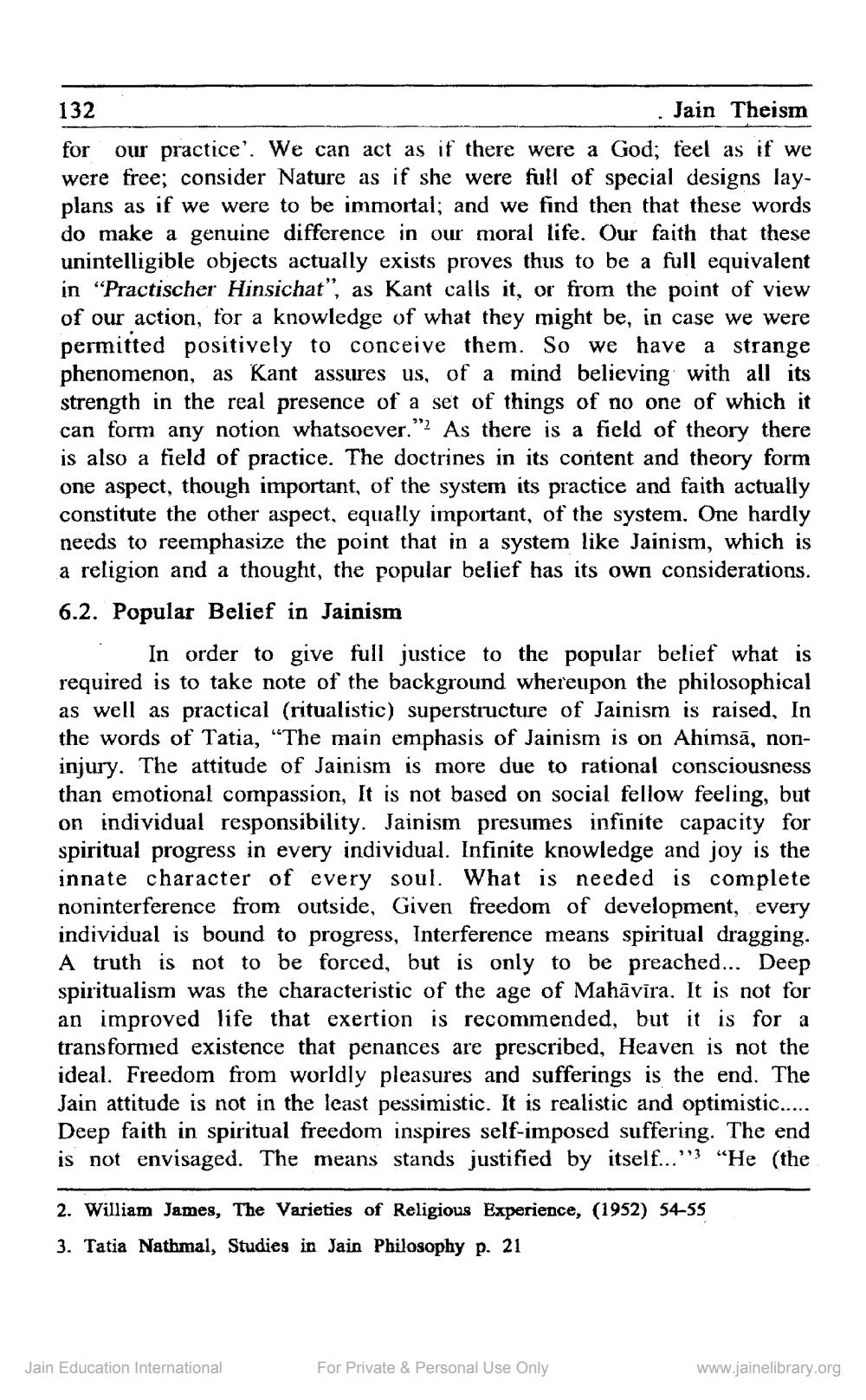________________
132
Jain Theism for our practice'. We can act as if there were a God; feel as if we were free; consider Nature as if she were full of special designs layplans as if we were to be immortal; and we find then that these words do make a genuine difference in our moral life. Our faith that these unintelligible objects actually exists proves thus to be a full equivalent in “Practischer Hinsichat", as Kant calls it, or from the point of view of our action, for a knowledge of what they might be, in case we were permitted positively to conceive them. So we have a strange phenomenon, as Kant assures us, of a mind believing with all its strength in the real presence of a set of things of no one of which it can form any notion whatsoever."? As there is a field of theory there is also a field of practice. The doctrines in its content and theory form one aspect, though important, of the system its practice and faith actually constitute the other aspect, equally important, of the system. One hardly needs to reemphasize the point that in a system like Jainism, which is a religion and a thought, the popular belief has its own considerations. 6.2. Popular Belief in Jainism
In order to give full justice to the popular belief what is required is to take note of the background whereupon the philosophical as well as practical (ritualistic) superstructure of Jainism is raised, In the words of Tatia, “The main emphasis of Jainism is on Ahimsā, noninjury. The attitude of Jainism is more due to rational consciousness than emotional compassion, It is not based on social fellow feeling, but on individual responsibility. Jainism presumes infinite capacity for spiritual progress in every individual. Infinite knowledge and joy is the innate character of every soul. What is needed is complete noninterference from outside, Given freedom of development, every individual is bound to progress, Interference means spiritual dragging. A truth is not to be forced, but is only to be preached... Deep spiritualism was the characteristic of the age of Mahāvīra. It is not for an improved life that exertion is recommended, but it is for a transformed existence that penances are prescribed, Heaven is not the ideal. Freedom from worldly pleasures and sufferings is the end. The Jain attitude is not in the least pessimistic. It is realistic and optimistic..... Deep faith in spiritual freedom inspires self-imposed suffering. The end is not envisaged. The means stands justified by itself..."3 “He (the
2. William James, The Varieties of Religious Experience, (1952) 54-55 3. Tatia Nathmal, Studies in Jain Philosophy p. 21
Jain Education International
For Private & Personal Use Only
www.jainelibrary.org




